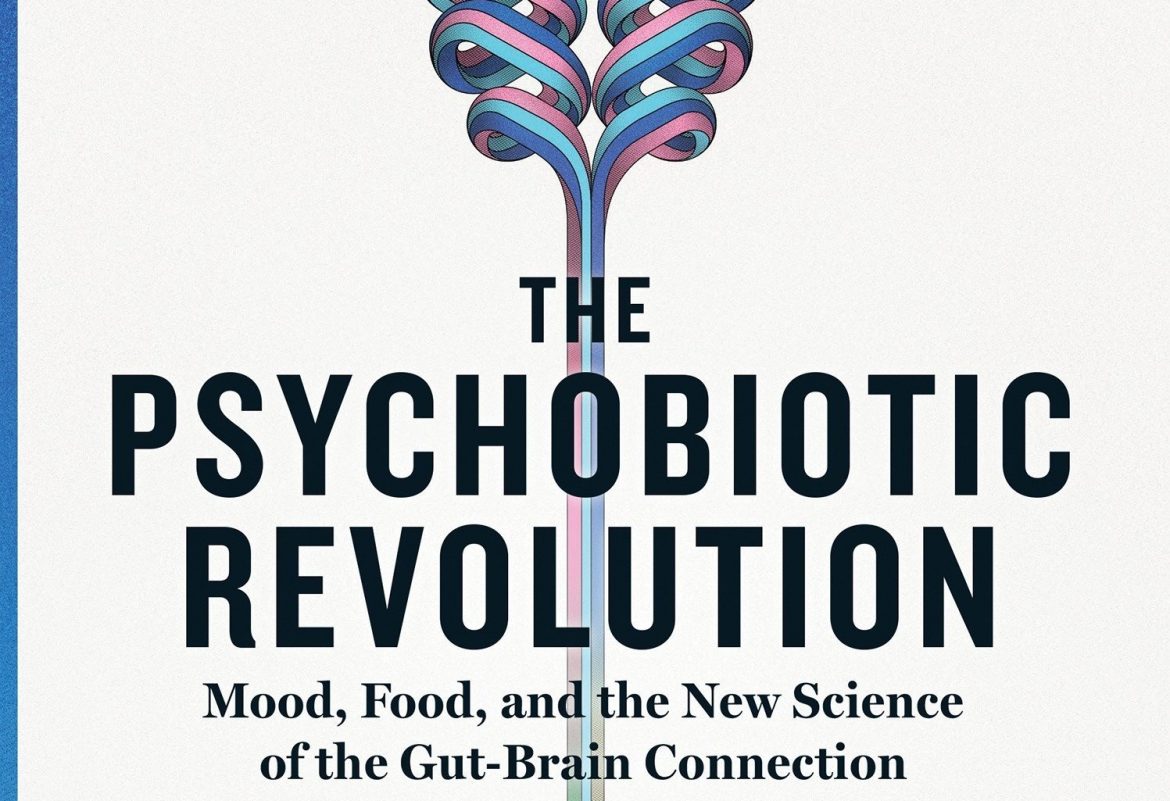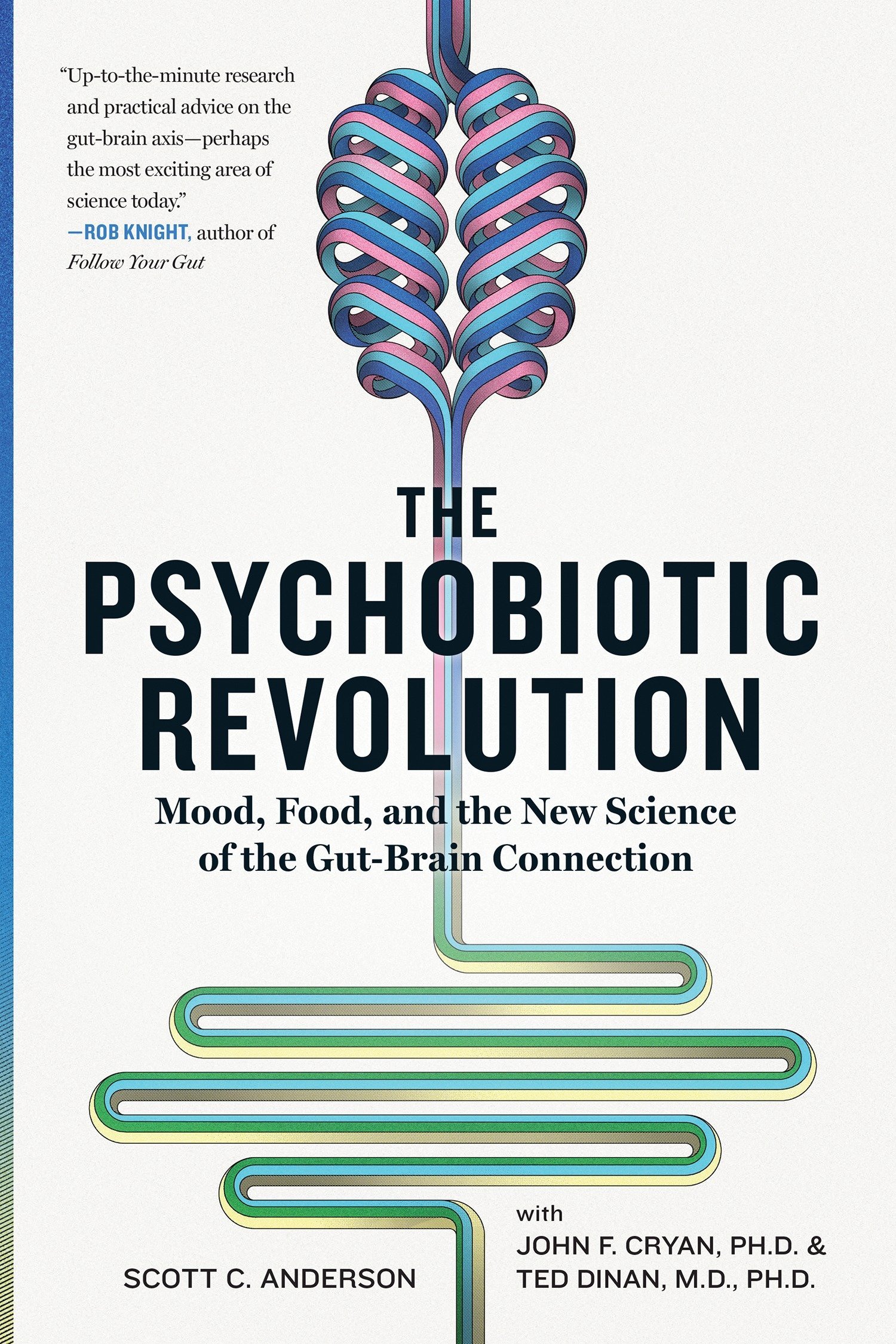The Pyschobiotic Revolution is here! However, it's not about taking up arms, but rather, our guts and brains.
As the subtitle suggests, Mood, Food, and the New Science of the Gut-Brain Connection, this scientific yet approachable book takes readers through many emerging discoveries regarding the inextricable link between our bellies and our brains.
Author Scott C. Anderson partnered with two of the world's leading researchers on the subject, Ted Dinan (MD & PhD) and John Cryan (PhD).
We had the pleasure and privilege to chat about The Psychobiotic Revolution with Anderson, a long-time supporter of LifeGarden Productions.
Learn more from Scott Anderson about the Psychobiotic Revolution, published by National Geographic, below!

Hi Scott! It's stellar to be able to talk to you about this exciting topic... Psychobiotics! In short, can you tell us what that term means and where it came from?
In 2013, psychiatrist Ted Dinan coined the term psychobiotic as "a live organism that, when ingested in adequate amounts, produces a health benefit in patients suffering from psychiatric illness". In other words, psychobiotics are microbes that can lift your mood!
Great, thanks for clearing that up! So, why is it a Revolution? What's going on with that?
The revolutionary part is that over the past decade, we have suddenly realized that most of our bacteria are beneficial (not cooties or germs) and that our guts are stuffed with a couple of pounds of them. It's called the microbiota and it is a newly discovered "organ" that produces healthy fatty acids and protects us against the roving pathogens of the world.
You were working with 2 of the leading scientists globally on this topic, correct? Can you tell us a little about your partnership with them and how you've worked together to create this book?
Ted Dinan, the creator of the term psychobiotic, and John Cryan are two of the top scientists in gut-brain research. They are brilliant and prolific. I came across their work doing research on microbes for an article I was writing. Psychobiotic is an eye-catching word and the concept made my mind reel. I wanted to write a book on the subject, so I contacted them by Twitter and then we talked by Skype (a win for technology). It turned out that John had read some of my articles, and fortunately, he liked them. We decided to do a book together.
Their time is best spent in the lab, so I did the bulk of the writing and they vetted it for accuracy. It was a fantastic collaboration!
Did you find anything particularly incredible or exciting while researching and writing this book?
I was astounded to find out just how potent gut microbes are to our mental health. Some amazing facts:
- Microbes produce neurotransmitters, potentially allowing them to talk directly to our brain through the vagus nerve.
- Microbes help our brain develop when we are babies.
- Microbes control many of our cravings, encouraging us to eat what they want.
- Beneficial gut microbes are more important than our own immune system when it comes to fighting pathogens.
- Stress can negatively impact our microbiota, which in turn can lead to further stress.
What do you think is most important for people to know about The Psychobiotic Revolution?
One important takeaway from psychobiotic research is that the current epidemic of depression (the WHO says depression is the number one cause of disability around the world) may be at least partly due to a lousy diet. Modern manufacturers process the fiber (microbe ambrosia) out of food and replace it with refined carbs and sugar. Eating less processed food and avoiding sugar is a great start to relieving depression. Eat more veggies and fruit that are high in fiber like artichokes, asparagus, onions, and berries. Also, fermented foods like sauerkraut are a great source of beneficial microbes.
Where should we go from here? How can people integrate this into their lives?
It is so hard to resist the delicious but unhealthy foods that occupy the central section of the store. But resist we must! Stick to the vegetable and fruit section. If you can, get a little fish, because omega-3 oils are anti-inflammatory and are hard to get from any other source. If you are vegan or vegetarian, you can get a type of omega-3 from algae. This is the Mediterranean diet, and the people who choose it live longer and healthier lives.
Finally, how can we support you, this book, and the Psychobiotic Revolution in general?
To learn more, pick up The Psychobiotic Revolution published by National Geographic. It has all the latest research, but is written for the layperson. Get ready to learn some amazing things about your body!
Now that we know much of depression starts in the gut, it's time we stopped stigmatizing people with mental health issues. If your friends or family have depression or anxiety, tell them about this revolutionary research. It could save their lives!
Thanks, Scott! We look forward to all your amazing work to come. Cheers!


1 comment
These videos certainly provide “food for thought” – now the operative question is this:
What food’s and/or supplements contain the known beneficial microbes, and which
others that CLAIM the benefits are just fake nonsense? I’d be interested in what you
know so far.